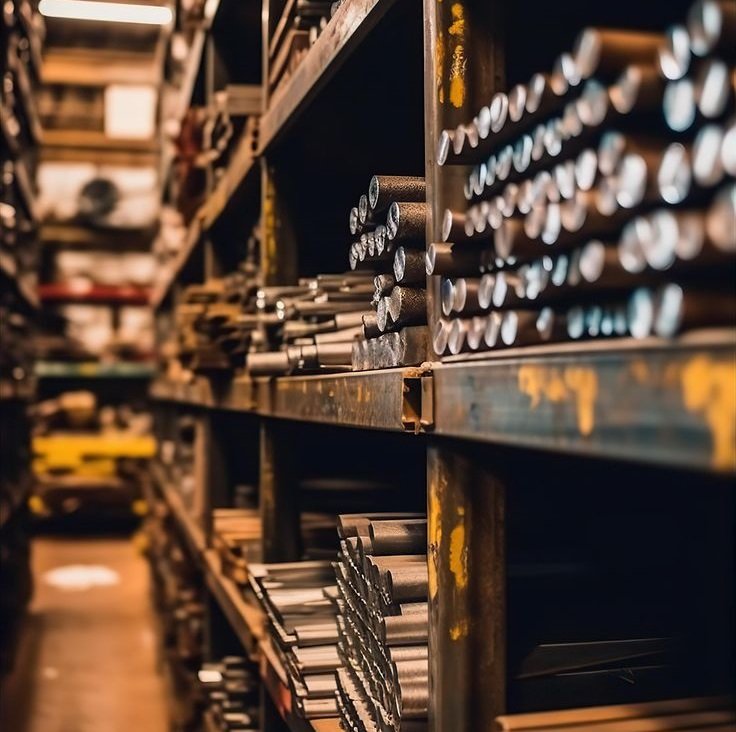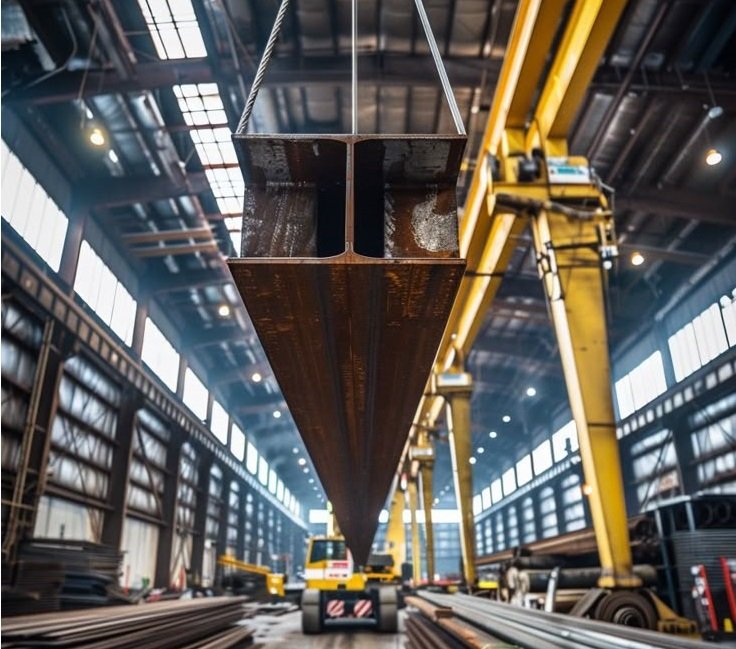In today’s competitive market, mastering the bulk purchase of industrial metals can be the difference between success and stagnation. At Steelbridge Export, we’ve spent years perfecting procurement strategies that ensure cost efficiency, supply security, and competitive advantage.
Best Practices for Bulk Purchasing of Industrial Metals
Whether you’re building infrastructure, expanding manufacturing capacity, or planning a major solar panel investment in Middle East projects, understanding best practices in large‑scale metal procurement is critical.
1. Understand Market Forces and Timing
Industrial metals—such as copper, aluminum, steel, nickel, and zinc—are subject to global market swings. Prices fluctuate based on supply constraints, demand growth, speculative activity, and geopolitical events. To optimize your bulk purchase of industrial metals:
Track price trends daily, monthly, and annually.
Coordinate buying cycles with major infrastructure or solar panel investment in Middle East initiatives.
Leverage forward contracts to lock in favorable prices, especially before large project launches.
A comprehensive procurement strategy keeps you ahead of buyers that wait too long—and suffer higher costs.
2. Perform Thorough Supplier Due Diligence
When you’re buying in bulk, selecting reliable suppliers is non‑negotiable. Look for partners who offer:
Proven track records in handling high‑volume orders.
Robust quality control standards.
Financial flexibility—or access to EPCF model‑aligned financing.
Geographically diverse operations for resilience.
Steelbridge Export emphasizes rigorous supplier evaluation, especially when tied to long‑term projects like solar panel investment in Middle East, to ensure consistent access to critical metals.
3. Optimize Logistics and Customs
Securing metals isn’t just about price—it’s about delivery. For bulk procurement, logistics can make or break margins. Best practices include:
Route mapping to avoid chokepoints or congestion.
Warehouse positioning near ports or your manufacturing hub.
Expert handling of customs clearance for industrial goods, especially when importing large metal consignments.
Transport flexibility, including rail, road, sea, or air—whichever secures best delivery time and cost.
Integrated logistics support from Steelbridge Export’s global team ensures bulk orders arrive fast, intact, and compliant.
4. Use Hybrid Purchasing Structures
When metal demand is tied to multi‑year asset builds—like solar panel investment in Middle East farms—mix your procurement:
A small spot purchase to meet immediate needs.
A forward contract to cover medium‑term demand.
A framework or blanket agreement for ongoing monthly delivery.
This layered strategy reduces risk and allows budget certainty while capitalizing on price dips.
5. Negotiate Financing Using the EPCF Model
Bulk procurement requires capital—and that’s where the EPCF model shines. By bundling Engineering, Procurement, Construction, and Financing, you can embed large metal buys into overall project funding. Benefits include:
Deferred capital outlay timed with project cashflow
Improved lender confidence due to integrated structure
Enhanced negotiation power with suppliers via pre-approved financing
Especially for large solar panel investment in Middle East projects, using EPCF for metal ordering creates budget stability and project readiness.
6. Focus on Quality Assurance & Traceability
When purchasing metals in bulk, quality control can’t be overlooked. Key measures include:
Requiring material certificates (e.g., ASTM, ISO).
Periodic onsite quality inspections.
Batch testing and non-destructive evaluation before shipment.
Full product traceability via barcodes or RFID systems.
These practices protect your investment and are essential for technical projects like solar farms or industrial construction.
7. Hedge Currency and Inflation Risk
Bulk purchases often span countries and currencies. Protect your margins by:
Locking exchange rates through forward FX contracts.
Using indexed contracts tied to inflation or commodity price metrics.
Implementing shared cost models in long‑term supplier agreements.
When your procurement supports solar panel investment in Middle East infrastructure, managing currency exposure safeguards ROI.
8. Leverage Bulk Discounts and Consolidated Shipping
Buying in volume demands better terms. Negotiate:
Tiered discounts for quantity thresholds.
Cost reductions tied to packaging optimization.
Shared-sea-freight deals or FCL (full container load) discounts.
Consolidated shipping across related projects to spread overhead.
At Steelbridge Export, leveraging these bulk advantages provides clear cost savings for steel, copper, and aluminum shipping.
9. Build In Flexibility for Supply Chain Disruptions
Even the best plans encounter delays. Prepare by:
Including force majeure clauses with clear triggers.
Keeping buffer stock at on-site or warehouse locations.
Establishing dual-sourcing for critical metals.
Reviewing logistics plans regularly to uncover delays or bottlenecks.
These steps fortify your bulk procurement strategy—especially for location‑specific initiatives like solar panel investment in Middle East installations.
10. Streamline Payments with Structured Trade Finance
Processing large payments for bulk orders requires secure systems. Best practices:
Use letters of credit (LCs) to guarantee payment upon delivery.
Hold back small retention amounts tied to quality checks.
Leverage SCF (supply chain finance) tools to optimize your cashflow.
Synchronize payment timing with performance milestones of your epcf model project.
This ensures that your metal procurement aligns smoothly with the broader project lifecycle.
11. Integrate Sustainability and Compliance
Today’s bulk buyers are ethically accountable. Incorporate:
Environmental clauses ensuring low-carbon production.
Sourcing metals with recycled content or low-emission smelting.
Certifications like ISO 14001 for environmental management.
Supply chain audits aligned with modern ESG criteria.
These safeguards not only fulfill regulations—they protect brand value and enable finance from green funds tied to EPCF-integrated projects.
12. Use Technology to Monitor and Manage
Automation and visibility reduce risk in bulk purchasing. Recommended tools include:
Procurement systems with real-time invoicing and status updates.
Inventory management linked to actual project usage.
Blockchain or digital ledgers to audit material flow.
Data analytics to identify saving opportunities, delays, and optimization points.
Steelbridge Export integrates these systems for its clients, ensuring seamless support for bulk purchase of industrial metals.
13. Review and Adjust Regularly
Market conditions evolve; your strategy must too. Conduct quarterly reviews to:
Audit spot vs. forward fulfillment
Evaluate supplier performance
Update safety stock based on usage
Re-negotiate pricing tiers if buying volumes change
This ongoing refinement keeps your bulk metal procurement aligned with project goals and market dynamics.
Related: How to Import Industrial Metals from China: A Step-by-Step Guide
14. How EPCF Enables Powerful Bulk Procurement
Let’s tie it all together: the EPCF model is the best environment for orchestrating bulk metal purchases:
Integrated procurement planning
Financial structuring to cover large orders
Project-level logistics planning
Risk-sharing via performance guarantees
Compliance with quality, customs, and financing standards
When your metal sourcing supports major infrastructure or solar panel investment in Middle East ventures, EPCF elevates your strategy from transactional to transformational.
Summing Up: The Path to Bulk Procurement Mastery
To recap best practices:
Understand market timing
Vet suppliers and dual-source
Optimize logistics and customs
Use hybrid purchasing structures
Embed financing with EPCF
Ensure quality and traceability
Manage currency inflation
Maximize bulk and shipping discounts
Build supply chain flexibility
Structure payments intelligently
Prioritize sustainability
Leverage digital tools
Reassess strategies regularly
Why Steelbridge Export Leads the Way
With decades of experience, Steelbridge Export knows that bulk procurement is more than buying volume—it’s managing complexity. From metal sourcing to logistics, from financing to ESG compliance, our teams align with investors and project managers every step of the way.
The result? Savings, reliability, and a clear path to project delivery—especially when working in fast-growing regions like the Middle East with solar demand booming.
Frequently Asked Questions (FAQs)
- 1. Why is understanding market forces critical in bulk purchasing of industrial metals?
Market volatility affects metal prices significantly due to supply-demand dynamics, geopolitical events, and speculation. Tracking price trends and timing purchases strategically—especially ahead of major infrastructure or solar panel investments in the Middle East—helps optimize costs and reduce risk. - 2. What makes supplier due diligence essential for bulk procurement?
High-volume contracts demand reliable partners with proven quality controls, financial stability, and capacity to meet ongoing demand. Vetting suppliers thoroughly, including their geographic resilience and EPCF financing compatibility, ensures uninterrupted supply chains critical for large-scale projects. - 3. How can logistics and customs impact bulk industrial metal purchases?
Efficient routing, warehousing near ports, and expert customs clearance prevent costly delays and damage margins. Coordinated multimodal transport and compliance expertise safeguard delivery timelines, especially when importing metals for solar EPCF projects in regions like the Middle East. - 4. What benefits does a hybrid purchasing strategy offer?
Combining spot buys, forward contracts, and blanket agreements balances immediate needs with budget certainty and market opportunities. This layered approach reduces exposure to price spikes and supply shocks, enabling smoother procurement aligned with multi-year project timelines. - 5. How does the EPCF model facilitate financing in bulk metal procurement?
By integrating engineering, procurement, construction, and financing, EPCF structures allow deferred capital outlays aligned with project cash flows. This coordination improves lender confidence and strengthens negotiation leverage with suppliers, crucial for bulk purchases in solar and infrastructure projects. - 6. Why is quality assurance and traceability non-negotiable?
Ensuring certified materials, batch testing, and full traceability protects project integrity and compliance. Especially in technical applications like solar farms, strict quality protocols prevent costly rework and maintain client trust.











